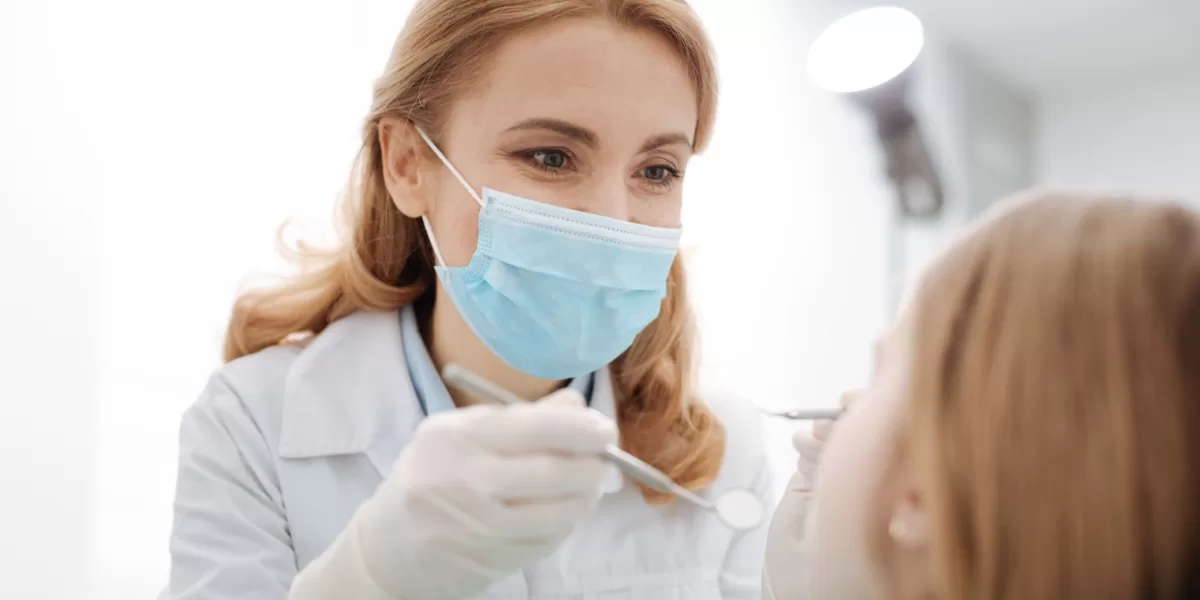Getting one’s wisdom teeth is a well-recognized, coming-of-age milestone. Unfortunately, though, wisdom teeth do not serve a purpose, and they can wreak havoc on a healthy, developing mouth.
The number of wisdom teeth can vary, though most people grow one to four on average. However, there are some who do not get any at all and others yet who will grow eight or more.
Whatever the number of wisdom teeth, leaving them to fully develop can often cause unnecessary crowding or damage to other teeth, as well as infection and pain. The best time to have them removed is usually between ages 15 and 18.
This begs several questions. Who should you trust with your teen’s mouth? What can you expect from recovery? How painful is it? Our hope is by the end of this article you will have a deeper understanding and be more comfortable addressing this common, minor surgical procedure.
Choosing Your Doctor
In most cases, it begins with a general dentist. A dentist is well equipped as the frontline for oral healthcare. Regular checkups and cleanings help maintain a healthy smile.
Oral surgery, however, is often handled by a specialist. Oral and Maxillofacial Surgeons have 4 to 6 years of hospital-based surgical training beyond dental school and perform thousands of surgeries before graduation, ranging from tooth extraction to major reconstruction of the face for defects caused by tumors or trauma.
Oral and Maxillofacial Surgeons are also specifically prepared to handle any unforeseen situations. The level of impaction, the number and shape of the roots, the nerves running nearby, and many other factors are taken into consideration before performing this procedure. Keep in mind that even after taking everything into consideration, only so much can be learned from an x-ray.
With an oral surgeon driving the car, patients are more likely to reach the destination more quickly and safely. They will also be able to sleep the whole way there! Oral and Maxillofacial Surgeons are trained in all four levels of anesthesia to ensure a very comfortable ride so patients are up and feeling good in no time!
Preparing For Surgery
A consultation is an ideal way to start. It offers you the opportunity to ask questions and learn all about you or your teen’s specific case. Don’t hesitate to ask anything and everything. You should feel comfortable and well-informed before moving forward. It is best to arrive on the day of surgery knowing what to expect.
Wisdom teeth removal is an outpatient procedure. Patients come into our office for the procedure and return home on the same day. It is highly recommended to use general anesthesia for this procedure. This level of anesthesia cannot be done by a general dentist, but it ensures a much more comfortable procedure. Patients undergoing general anesthesia will be awake and ready to leave within a short time of their procedure though they are not allowed to drive (if of age) for 24 hours following. They will need an escort to take them home and remain with them for the rest of the day.
On the day of surgery, we ask that patients come dressed in a short-sleeve shirt to accommodate the blood-pressure cuff and the IV. They are also welcome to bring a lap blanket. The procedure typically lasts about 30 minutes, after which they are moved to our recovery area and monitored for another 20 to 30 minutes or so until they are ready to go home.
Recovery Dos & Don’ts
Initially patients will wake up feeling groggy and can feel a little disoriented. The medication given during the procedure will prevent patients from waking up with any pain. They should plan on resting for the remainder of the day as the anesthesia wears off. When standing up, be sure they rise slowly and carefully.
Minor pain and swelling is to be expected as the numbness wears off. We provide ice packs to patients in recovery and recommend continuing to apply ice in twenty-minute intervals during the first 48 hours following surgery. This will help minimize the amount of swelling though some is expected to continue for the following few days, the worst being on day three. From that point forward, the swelling will begin to subside.
While our practice emphasizes the use of non-opioid or non-narcotic pain medication, pain management will be provided with instructions that should be closely followed.
Rinsing with mild salt water helps keep the mouth clean of infection. Rinse at least 2-3 times per day or after each meal.
Slight bleeding is normal for up to 24 hours. Biting down on gauze or a black tea bag will help with continued bleeding. Patients should not to fall asleep with any gauze in their mouth. If bleeding is persistent, always feel comfortable in contacting our office.
Patients should also plan on refraining from strenuous activities, including weight lifting, for 3-5 days following the procedure. The goal is to keep blood pressure from rising too high and interfering with the first phase of healing. Taking it easy can also help with the retention of blood clots and help prevent dry socket.
There are some foods that should be avoided during the healing process. They include anything hard or crunchy: popcorn, nuts, chips and other foods that can leave small, hard bits in the extraction sites are examples of what not to eat. The extractions will leave visible holes where the wisdom teeth once were.
An irrigation syringe along with instructions on how to use it will be provided at the patient’s follow-up visit to help keep food from building up. Stitches that were placed will dissolve 3-5 days after the procedure.
Always remember that our care does not end when the patient leaves our office! Patients or their caregivers should call us at any time if they have any concerns or problems following the procedure. Our team is here for our patients 100% of the way to ensure a positive experience.
Give our office a call!


